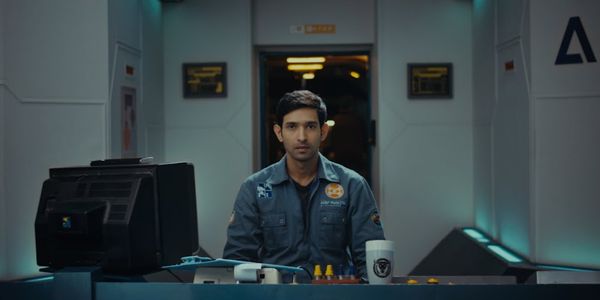If Indian movies are to explore deep philosophical concepts of science-fiction, they will most likely turn to spirituality to help explain them. This doesn’t mean that the genre is intrinsically tied to Hinduism, Buddhism or the history of religion in India, but it does mean that there is an innate characteristic of the way Indian stories are told that fold mysteries of worlds and concepts beyond mortality to ideas that have roots in India itself. This is why genre films in horror, fantasy and science-fiction in India mostly relegate themselves to ideas like reincarnation.
Toying With Genre
While science fiction movies have existed in India, even though they are almost exclusively from the 21st century, there hasn’t been one that really took the full leap of dedicating its entire narrative in space. And while fantasy in India has been done many times, specifically in direct relation to religious stories like the Mahabharata or Ramayana, there hasn’t been on which deals almost exclusively with that happens after death.
Yet, Arati Kadav’s Cargo is a science fiction movie and a fantasy film only on its peripheries. It is more similar in its conceit to films like Ingmar Bergman’s The Seventh Seal or Wim Wenders’ Wings of Desire, where it considers human drama and relationships between people as the primary key between all components of the metaphysical. The problem lies in that it fails to fulfill either of these resonant ideas.

The low budget of the film confines it to a spaceship set that is reminiscent of both Duncan Jones’s Moon in its eerie shadows and cold steel with the desert bunker in Dave McCary’s Brigsby Bear, so as to provide some sort of whimsical entertaining quality to its aesthetic. Even the more functional aspects of the film’s technological equipment are easily created through repurposed electronics with new chassis and new life as “sci-fi software”. In general, the staging and structural build of the movie is believable enough that we don’t get distracted by the place that its two protagonists inhabit.
Flimsy Premises
Yet, everything aside from Cargo’s production doesn’t quite fit or flow. The premise of the film is about two individuals, the weary veteran demon Prahashta (Vikrant Massey) and his new, by-the-book assistant Yuvishka (Shweta Tripathi) who work as part of the Post-Death Transition program for humans onboard the spacecraft Pushpak 634A (Pushpak means “flower” in Hindi). The rules for this post-death transition are ambiguous and the movie goes through several historical news briefings about an inter-dimensional alliance between humans and demons. These briefings don’t give much of a context as to what is the purpose of the set-up here, and while the movie is rife with allegory to Hindu philosophy and mythology (like Prahastha’s name), these remain as nothing more than easter-eggs for those versed in the religion.
Considering the movie’s central conflict lies in the human dynamics between Prahastha and Yuvishka, it is possible Cargo’s melding of sci-fi, Hinduism, and fantasy is merely a marketability play. It’s nearly impossible to tell the difference between demons and humans in this world other than a few physical features and or superpowers (Prahastha can levitate things and Yuvishka can heal wounds) so they exist merely as a vehicle of giving the partnership between the ship’s co-pilots an added quirk. It’s a basic odd-couple scenario where Yuvishka must earn the trust of Prahastha who prefers to work alone and merely finds her a nuisance.
Muddled Concoction
Through their bonding, they begin to have their own wills tested by starting to think about death in moral terms. Here the movie tries to function as a philosophical drama, but beyond considering death as a heavy burden on the lives of those who get to continue their journey it doesn’t ask many questions. In general, the movie’s drama is nearly non-existent and its comedy is buried under deadpan and quirk which its actors – both Massey and Tripathi are two-dimensional here – can’t stir up into entertainment. That leaves the world it inhabits, the spaceship, as the only source of some form of narrative vehicle. But here too, the movie only takes half-measures. Cargo is, in the end, a muddled concoction of many interesting ideas that don’t flow together.
Cargo premiered worldwide at the Mumbai International Film Festival in 2019 and premiered in North America as part of SXSW’s Online Library in March 2020.
Does content like this matter to you?
Become a Member and support film journalism. Unlock access to all of Film Inquiry`s great articles. Join a community of like-minded readers who are passionate about cinema - get access to our private members Network, give back to independent filmmakers, and more.